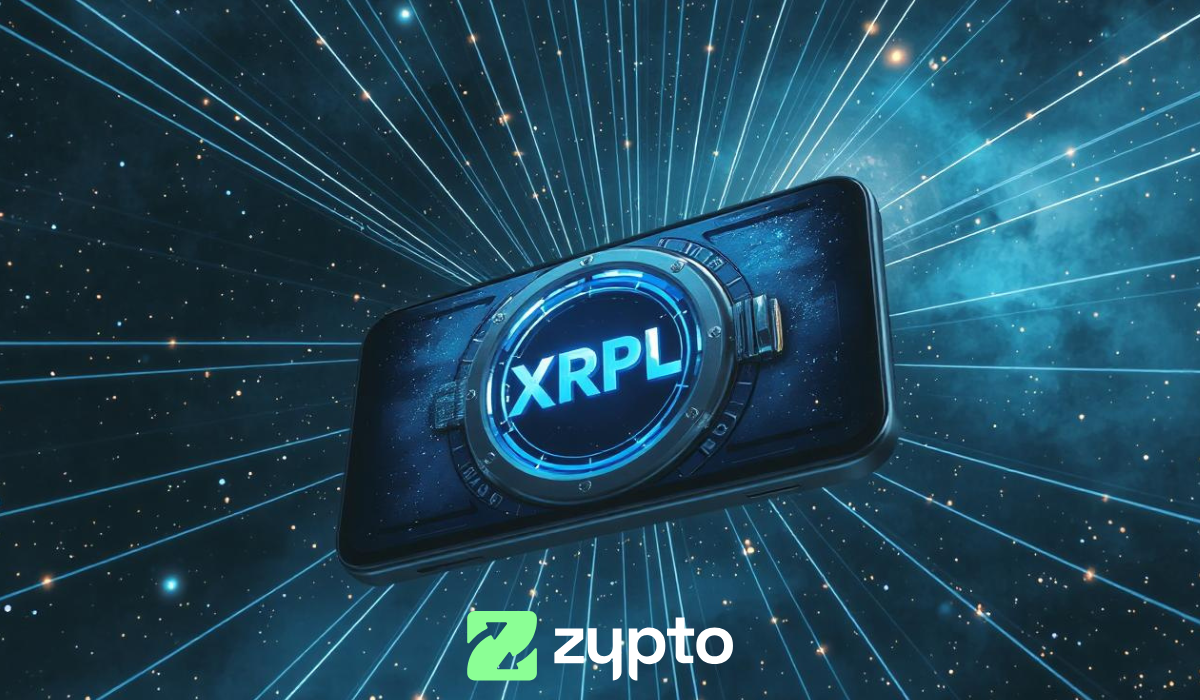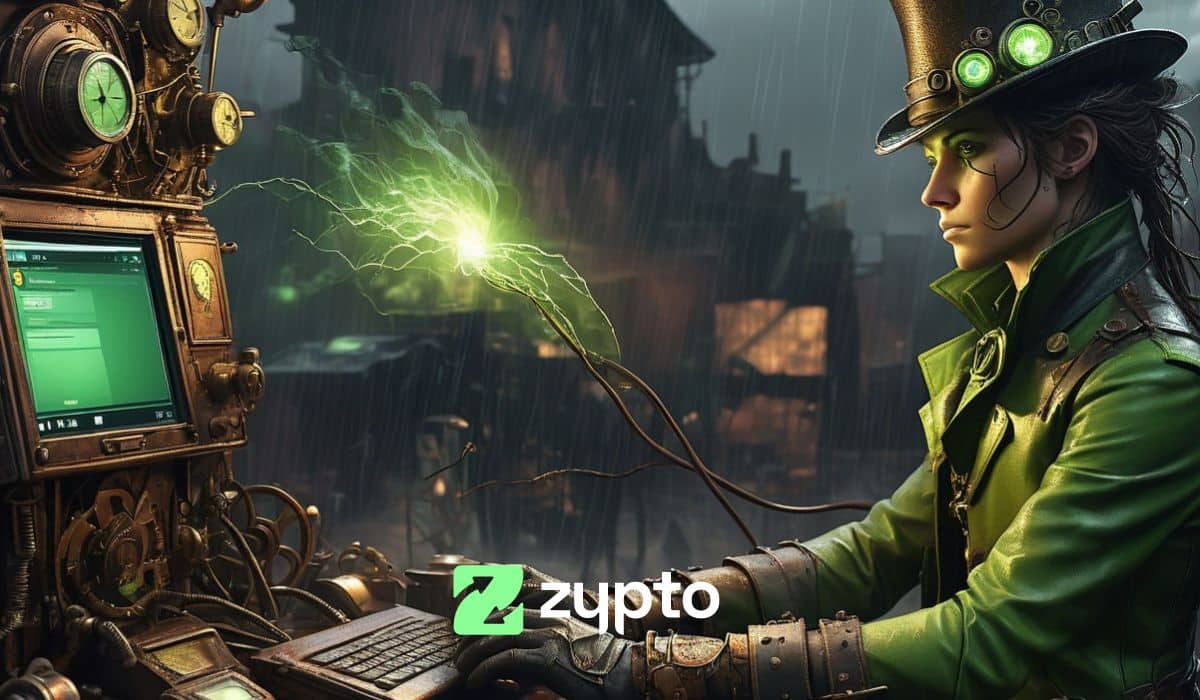Nick Szabo is credited with coining the term “smart contracts” and proposing the concept itself. Over two decades later, his idea has revolutionized digital transactions.
What’s more intriguing is how he has maintained a relatively low profile, leaving much of his personal life shrouded in mystery. Despite this, his work has significantly impacted the fields of computer science and cryptography.
In this article, we explore Nick Szabo’s story, the brilliant mind behind this idea, and how his vision changed the modern world of digital contracts and blockchain technology.
Who is Nick Szabo?
Nick Szabo, born in 1964, is a computer science and cryptography expert. Little is known about him, except for his educational background, U.S. citizenship, and pioneering work in the blockchain industry.
He earned his computer science degree from the University of Washington and later studied law at George Washington University Law School. This unique combination of expertise led him to develop the concept of smart contracts, where legal agreements could be encoded into software.
For his work, Szabo was honored with a professorship at Universidad Francisco Marroquín in Guatemala. He has written insightful blog posts and articles on topics such as the history of money and the applications of blockchain technology.
Szabo’s Proposal of Smart Contracts Idea
Szabo’s story has roots that stretch back to the tumultuous events of post-war Eastern Europe. In a rare glimpse into his background, Szabo revealed in an interview that his father fought in the Hungarian uprising against the Soviet Union in the late 1950s.
This family history helped him understand the cruelty of government oppression and the potential for abuse of centralized power. These themes later became central to his work in cryptocurrency and digital contracts.
Before smart contracts, traditional monetary agreements relied on intermediaries, trust-based systems, and complex legal structures. This often led to inefficiencies, higher costs, and potential delays.
Aiming to solve these problems, Nick Szabo introduced the concept of smart contracts in 1994. Smart contracts are self-executing agreements with terms directly written into code, automatically executing when predefined conditions are met.
Szabo’s vision for smart contracts was closely tied to his idea of “smart property.” He envisioned a world where property rights could be embedded directly into digital assets, allowing for more secure and efficient transactions without government or third-party involvement.
Interestingly, this concept was proposed when the internet was still in its infancy, and the idea of digital ownership was largely unexplored and seemed unrealistic.
While the technology to fully realize his vision wasn’t available in the 1990s, Szabo’s ideas were prescient. He could be considered a visionary who anticipated many of the challenges and opportunities that would arise with the growth of digital commerce and decentralized systems.
He recognized the potential for these digital agreements to reduce transaction costs, minimize the need for intermediaries, and create more secure and transparent systems for conducting business online.
Szabo’s early work on smart contracts laid the foundation for their eventual implementation on blockchain platforms like Ethereum.
BitGold: Precursor to Bitcoin
Nick Szabo is also known for his 1998 proposal of “BitGold.” BitGold is a conceptual decentralized digital currency many consider a direct precursor to Bitcoin. It addressed one of the fundamental challenges in creating a digital currency: the double-spend problem.
The double-spend problem is the risk that a digital token could be copied and spent multiple times, undermining the entire system. Szabo’s BitGold proposed a solution to this problem without relying on a central authority, a key feature Satoshi put into Bitcoin.
BitGold worked on a proof-of-work system, using computational power to create and validate new currency units. This system ensured that creating a new BitGold required significant effort, much like mining for physical gold.
Each unit’s ownership and transaction history would be recorded in a distributed property registry, an early concept similar to today’s blockchain.
While BitGold was never implemented, its influence on the development of Bitcoin is undeniable. Many of the core concepts proposed by Szabo, including proof-of-work and a decentralized ledger, were later incorporated into Satoshi Nakamoto’s Bitcoin white paper and implementation.
Here’s a table showing similarities and differences between BitGold and Bitcoin
| Aspect | BitGold | Bitcoin |
| Origin | Proposed by Nick Szabo in 1998 but never implemented. | Created by Satoshi Nakamoto in 2009 as a fully implemented cryptocurrency. |
| Decentralization | Both systems aim for decentralization using cryptographic principles. | Both systems use blockchain technology to achieve decentralization. |
| Proof of Work (PoW) | Bit Gold proposes PoW for block generation, similar to Bitcoin. | Bitcoin uses PoW for consensus and security. |
| Blockchain Structure | Bit Gold has a title registry storing time-stamped blocks, linking transactions like a chain. | Bitcoin’s blockchain consists of linked blocks with hash addresses pointing to the next. |
| Currency Units | Bit Gold uses non-fungible “different pieces of bit gold.” | Bitcoin uses divisible, fungible units called satoshis. |

How Have Smart Contracts Impacted the Blockchain Ecosystem?
Smart contracts have revolutionized the blockchain ecosystem and influenced the creation of new ideas. The implementation has opened up new paradigms for trustless interactions and automated governance in the digital realm.
Let’s examine the two key areas where smart contracts have made significant inroads.
Integration With Cryptocurrencies
Integrating smart contracts with cryptocurrencies, most notably Ethereum, was a game-changer for the blockchain industry. The launching of Ethereum in 2015 as a platform built specifically for smart contracts made Szabo’s big idea a reality.
This integration enabled the creation of programmable money, where the movement of digital assets could be governed by immutable, self-executing code. The advent of smart contract functionality on Ethereum also catalyzed the proliferation of tokenization, giving rise to the ERC-20 standard and its variants.
Today, these token standards have become the framework of countless blockchain projects, facilitating seamless interoperability and liquidity within the ecosystem.
Development of Decentralized Applications (DApps)
Smart contracts have also paved the way for decentralized applications or DApps. These blockchain-based applications use smart contracts to execute their core functions trustlessly and transparently.
Unlike traditional centralized applications, DApps operate on distributed networks that help prevent single points of failure and censorship vulnerabilities. The smart contract architecture of DApps has enabled the creation of autonomous systems across various sectors, including decentralized finance (DeFi), non-fungible tokens (NFTs), governance protocols, and more.
This paradigm shift towards decentralized computing can and has disrupted traditional business models and revolutionized the digital economy.
Is Nick Szabo the Real Satoshi Nakamoto?
The similarities between Szabo’s work and Bitcoin are certainly striking. His earlier writings on BitGold and smart contracts share many conceptual similarities with Bitcoin and blockchain technology.
Szabo’s understanding of computer science and economics, as evidenced in his blog posts and academic papers, aligns closely with the expertise demonstrated in the Bitcoin white paper.
Linguistic analysis has also supported the theory that Szabo might be Nakamoto. A 2014 study by researchers found significant similarities between Szabo’s writing style and that of the Bitcoin white paper.
Despite these compelling arguments, Szabo has consistently denied being Satoshi Nakamoto. In a 2014 email to journalist Dominic Frisby, Szabo wrote, “I’m afraid you got it wrong doxing me as Satoshi, but I’m used to it.” He has maintained this stance in subsequent years despite ongoing speculation.
The debate over Satoshi’s identity continues, with Szabo remaining one of the most frequently discussed candidates. However, like many aspects of the Bitcoin origin story, the truth may never be known with certainty.
Nick Szabo’s Lasting Legacy
Even though Szabo didn’t create Bitcoin himself, his ideas had a big impact on it. The person (or people) who made Bitcoin clearly knew about Szabo’s work. Many of the things that make Bitcoin special, like how the new coins are “mined,” were first thought up by Szabo in his BitGold idea.
Also, when Ethereum was created in 2015, it brought to life Szabo’s idea of smart contracts. Suddenly, what he had written about 20 years earlier was actually happening. This made Szabo’s earlier work even more well-known and respected. Smart contracts are now used in various industries, from finance and insurance to supply chain management and digital identity verification.
Szabo’s place in the history of digital innovation is secure. His ability to foresee the potential of digital agreements and decentralized currencies long before the technology existed to implement them marks him as a true visionary in the field.
What’s Next for the Blockchain Industry?
Undoubtedly, Nick Szabo’s contributions to cryptography and blockchain technology have had a profound impact on our digital space, from his early work on smart contracts to his influential BitGold proposal.
As we consider Nick Szabo’s work’s impact and the ongoing evolution of blockchain technology, it’s worth noting the emergence of innovative platforms like Zypto that are pushing the boundaries of what’s possible in the crypto space.
Zypto is building on the foundation of pioneers like Szabo to create a more accessible and user-friendly crypto ecosystem. Zypto presents the next step in this ongoing evolution, bringing the power of smart contracts and decentralized systems to a wider audience.
Join the #ZyptoCrew, and let’s make your cryptocurrency journey easy and smooth.
As we continue to explore the potential of blockchain technology and smart contracts, we’re left with an intriguing question: what’s the next big idea for digital space?
Please share your thoughts and predictions in the comments below.

FAQs
Did Nick Szabo invent smart contracts?
Yes, Nick Szabo is credited with inventing the concept of smart contracts in 1994.
Who is the founder of smart contracts?
Nick Szabo is considered the founder of smart contracts.
Is Nick Szabo Satoshi Nakamoto?
There is no conclusive evidence that Nick Szabo is Satoshi Nakamoto. Szabo has repeatedly denied being Satoshi.
Was Nick Szabo a Cypherpunk?
Yes, Nick Szabo is associated with the Cypherpunk movement, which advocated for using cryptography to promote privacy and political change.






























0 Comments